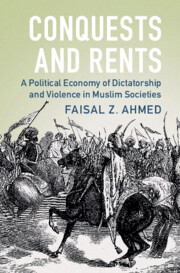This article presents the legal outlooks of two fundamental religious judicial systems—the halakha of Judaism and the shari'a of Islam—on the effect of war on private ownership. Specifically, we address the situation in which the conquered inhabitants are Jews or Muslims and halakha or shari'a are the legal systems of their religions, respectively, but the conqueror is a nonbeliever or secular sovereign. Such situations evoke the following questions: To what extent the transfer of ownership by the conquering sovereign is recognized by the religious laws of the conquered population? May a member of the conquered religion acquire property that was seized by the nonbeliever sovereign from a member of the conquered religion? Is transfer of ownership by virtue of conquest permanent or reversible, so once the conquest ends, ownership reverts to the pre-conquest owner? Various approaches to those questions within each of two religious legal systems are presented. Some of the similarities and the differences between halakha and shari'a are pointed out.
